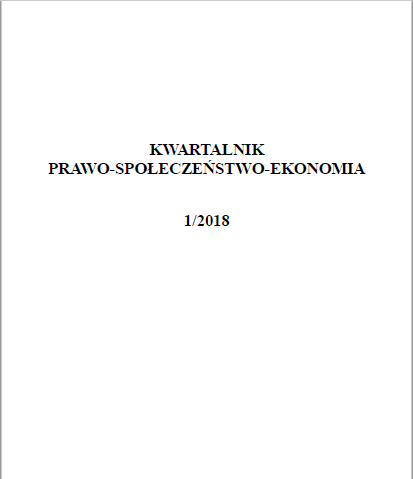O znaczeniu ‘przyczynowości’ w przyczynowych analizach kryzysu finansów publicznych
On the meaning of ‘causality’ in research on the causes and effects of public debt
Author(s): Mariusz MaziarzSubject(s): Supranational / Global Economy, Economic history, Transformation Period (1990 - 2010), Financial Markets, Public Finances
Published by: Stowarzyszenie Mage.pl
Keywords: causal inference; economics; financial crisis; public debt; causal pluralism;
Summary/Abstract: Recently, the majority of the OECD countries recorded highest levels of debt-to-GDP ratio historically. Economists usually point out the 2007-2008 financial crisis and the subsequent recession as the cause: public debt financed costly bailouts and stimuli packages. The purpose of the research is to analyze the methods of causal inferences employed by economists who focus on the factors that influenced the contemporary crisis of the public finance. The article is structured as follows. First, the research on causes of the recently observed rise in levels of public debt is reviewed and analyzed using the case-study method. The purpose of these studies is to reconstruct the methods of causal inferences employed by its authors. The following three case studies are considered: (1) Reinhart, Reinhart and Rogoff analysis of debt-overhang hypothesis; (2) Reinhart and Rogoff’s analysis on the relation between public debt and economic growth; and (3) Easterly’s research on the contrary direction of causal relation where pace of economic growth causes debt. Second, most popular philosophical theories of causality are operationalized. The following philosophical approaches to causality are discussed: (1) the Humean identification of causality with constant conjunctions (regularity view); (2) probabilistic causality that identifies causality with probability-raising; (3) counterfactual theories that reduce causality to counterfactual conditions of the form ‘if C did not happen, E would not happen’; (4) mechanistic causation identifying causality with mechanisms connecting cause and effect; (5) manipulationist approach that define causality with a possibility of intervention by means of changing cause and influencing effect; (6) and the capacity/causal powers approach that focuses on analyzing causal capacities instead of laws identified in the philosophy of economics with Cancy Cartwright and Tony Lawson. The study shows that economists accept causal pluralism. This stance states that none of the philosophical theories of causality ‘catches’ what causality is.
Journal: Kwartalnik Prawo-Społeczeństwo-Ekonomia
- Issue Year: 13/2018
- Issue No: 1
- Page Range: 22-36
- Page Count: 14
- Language: Polish

